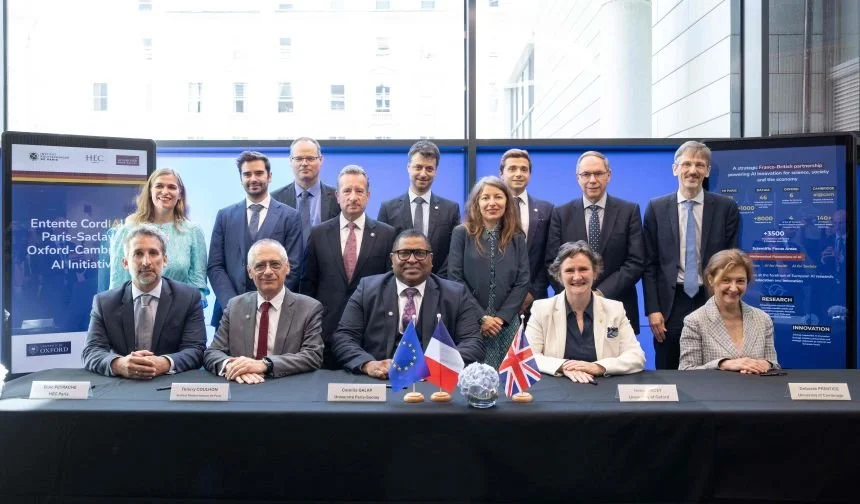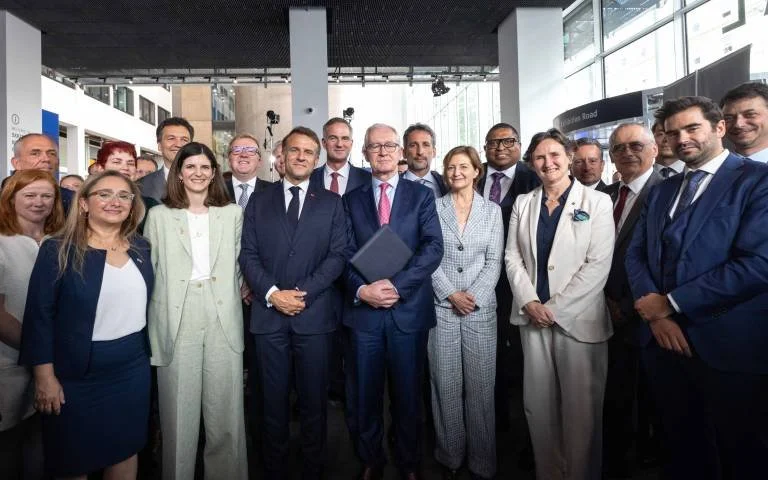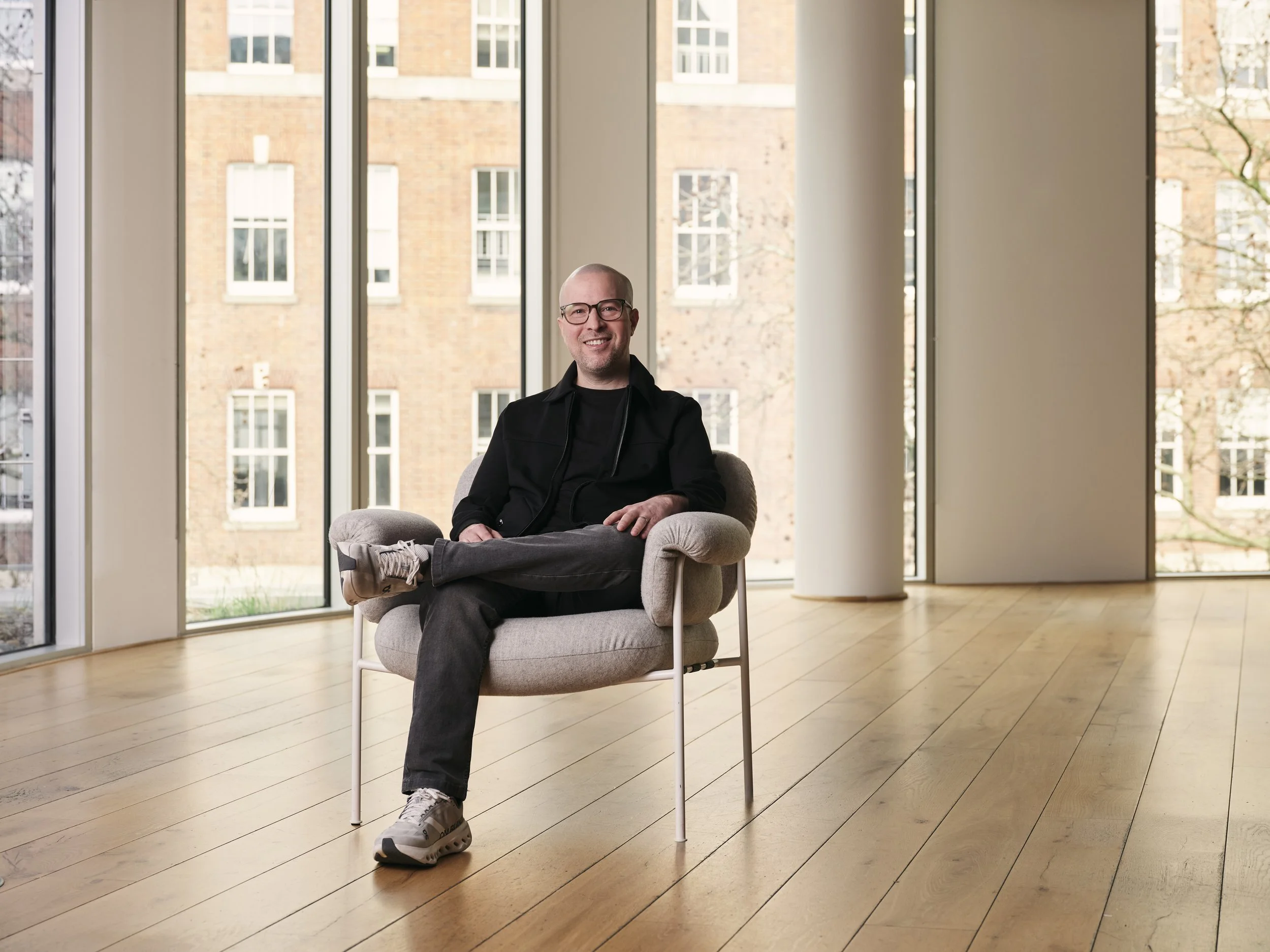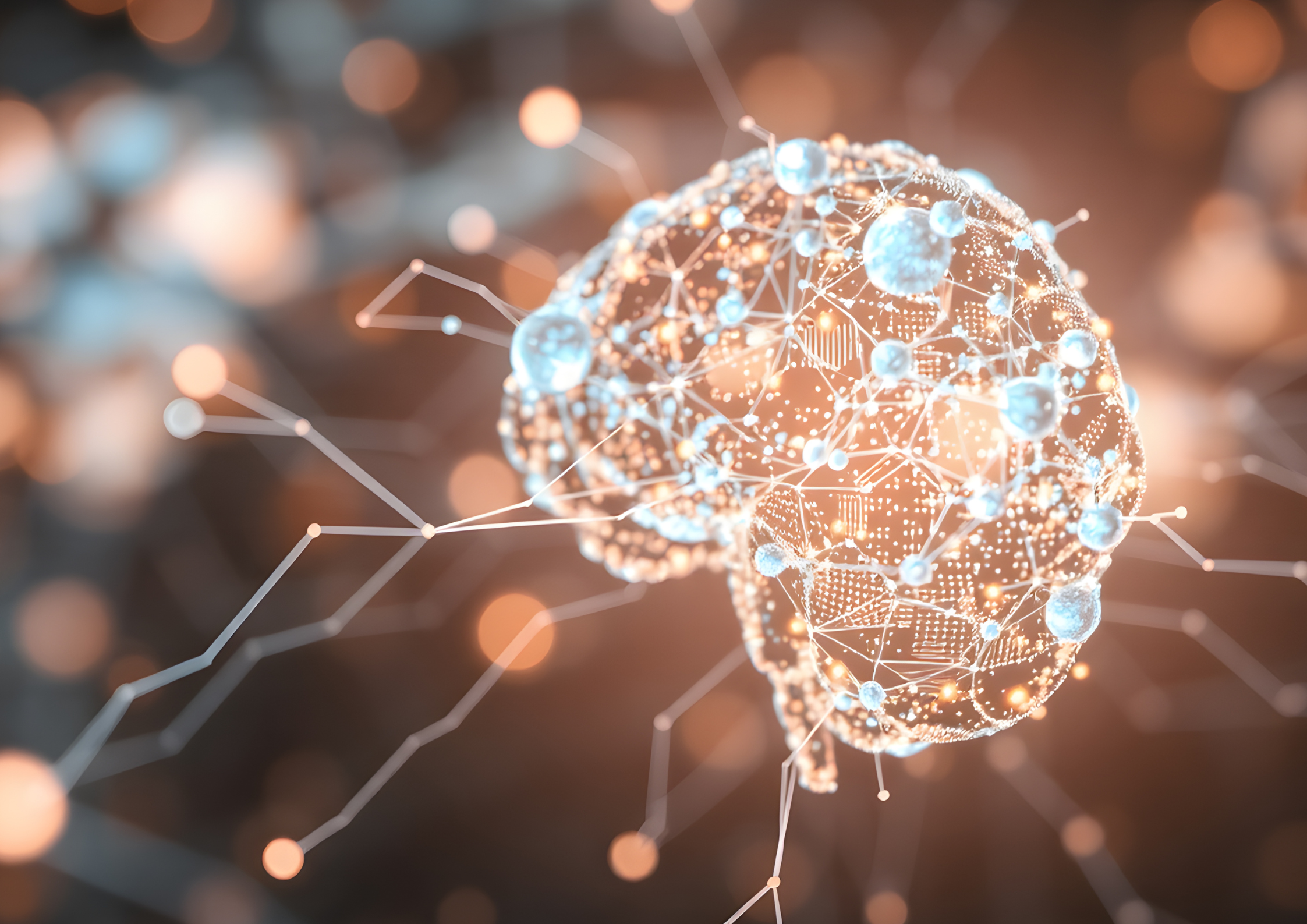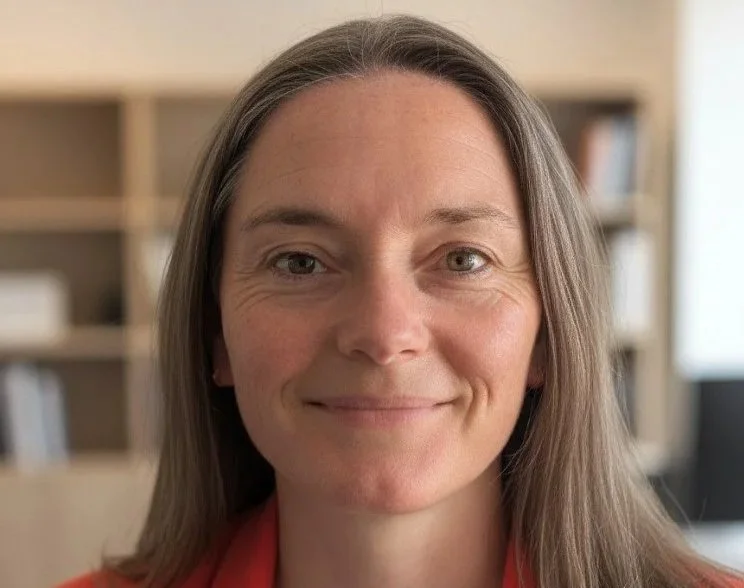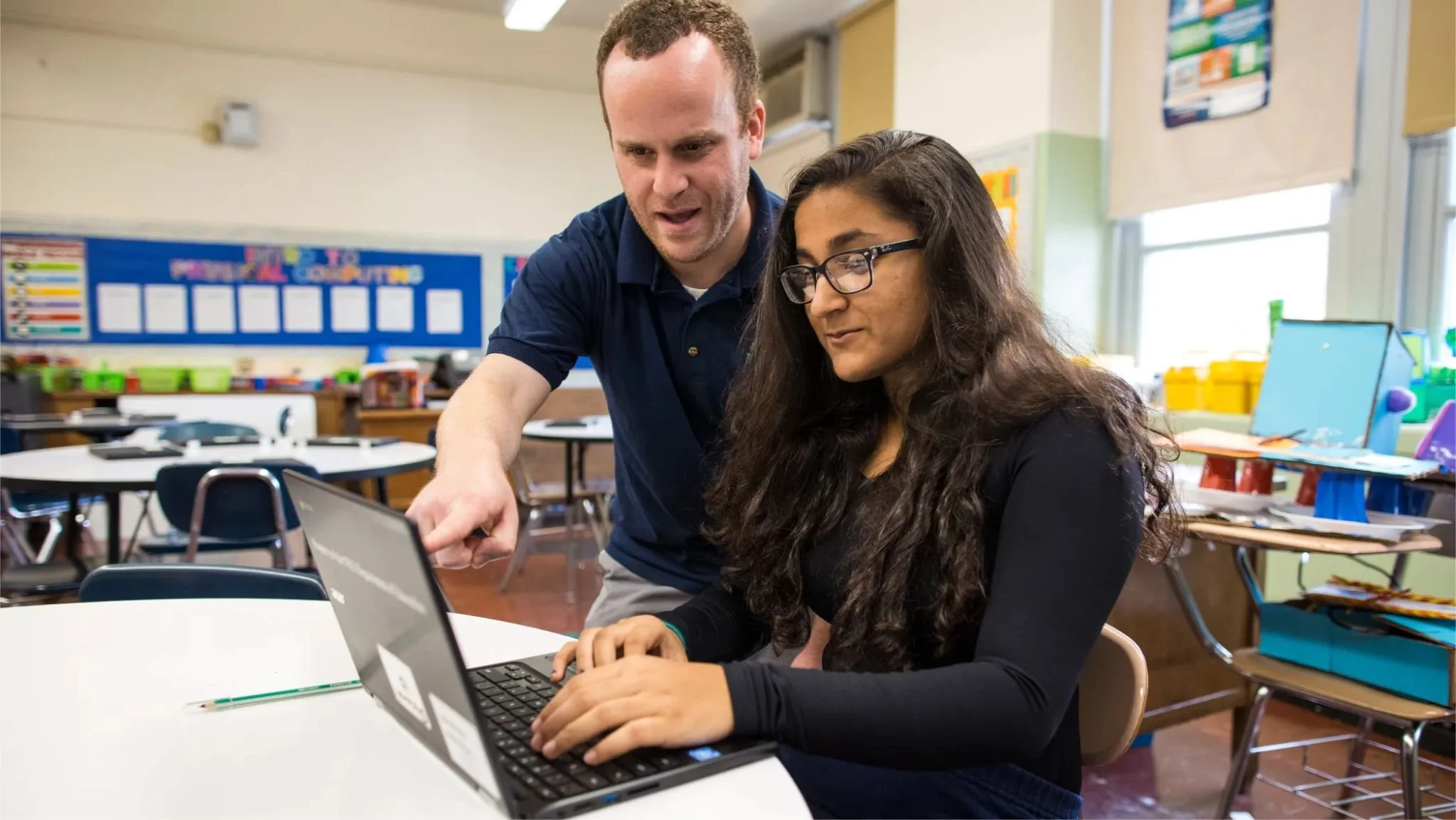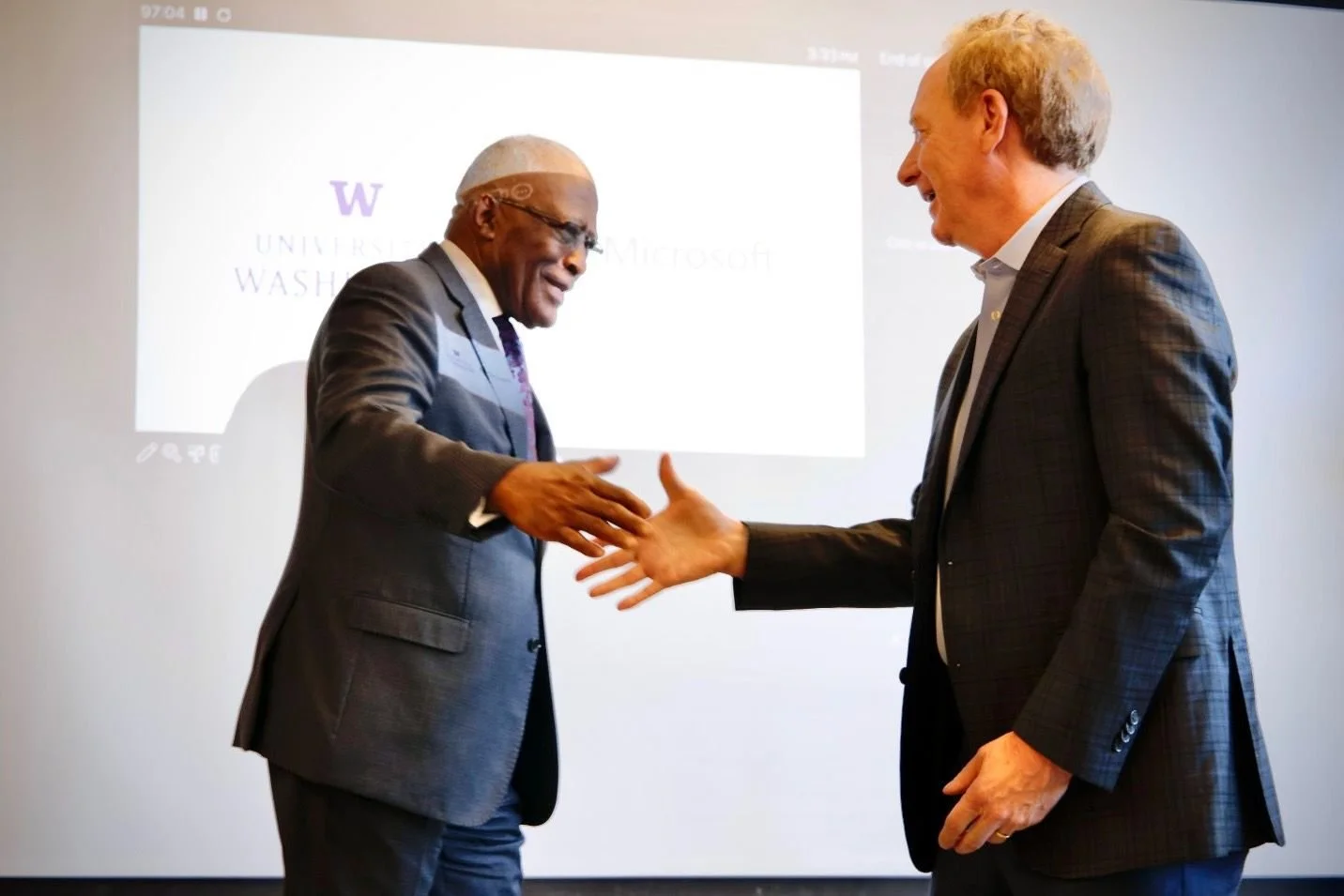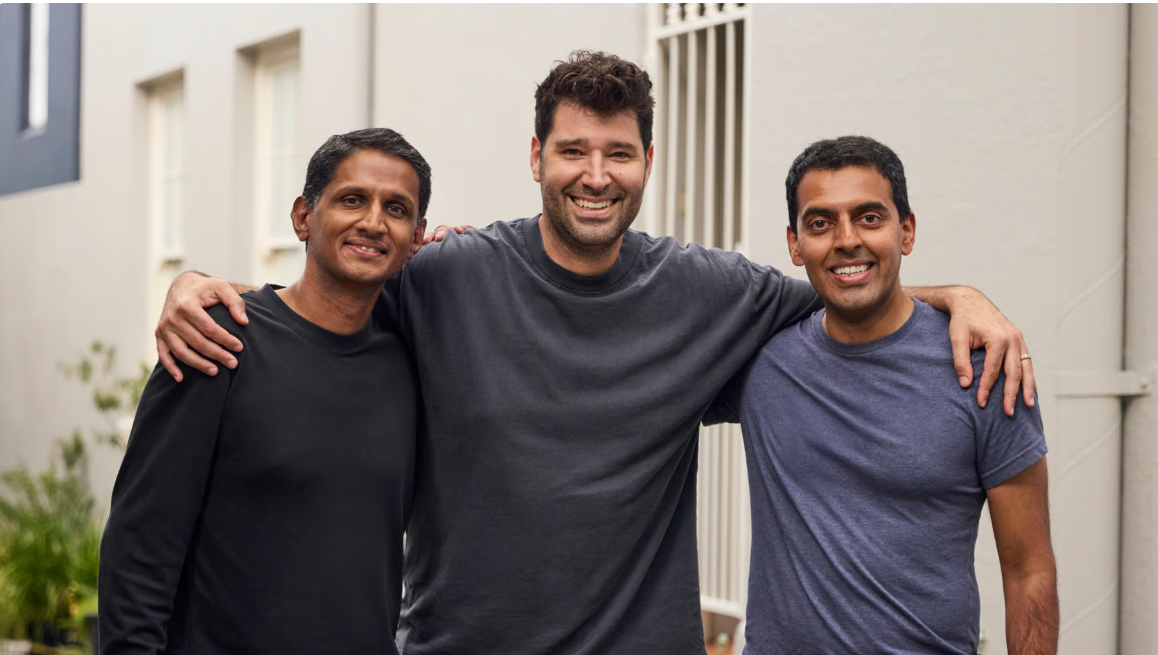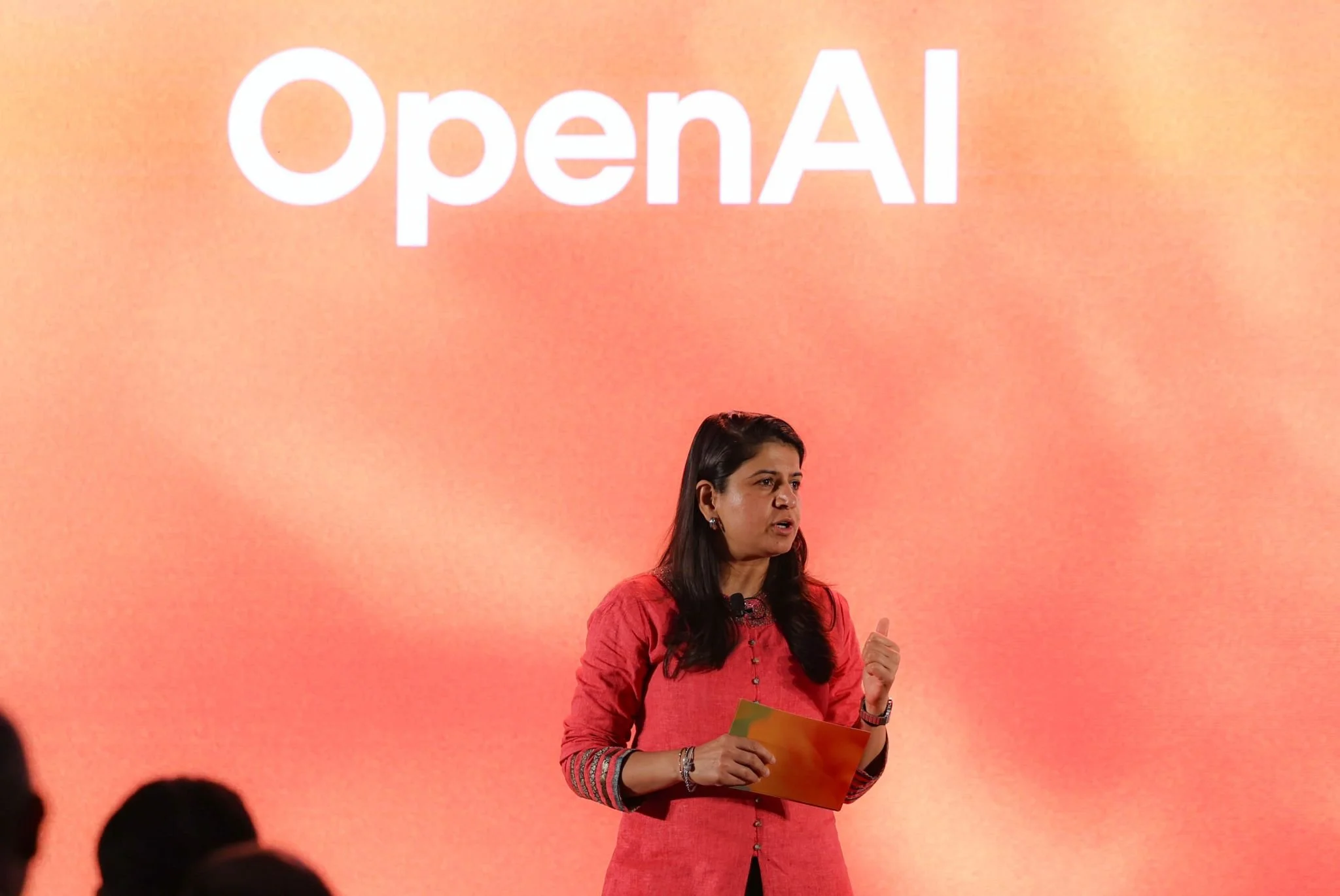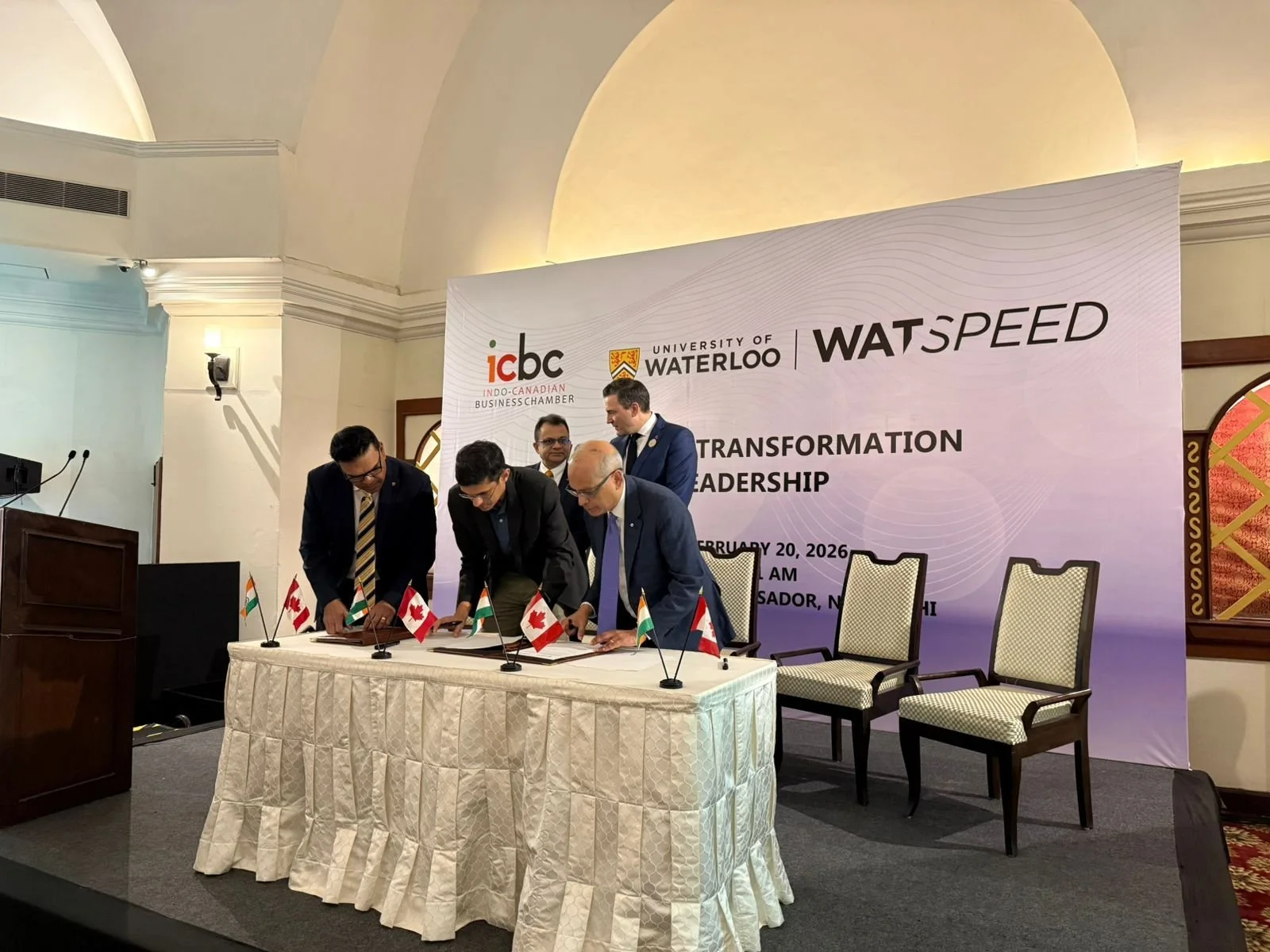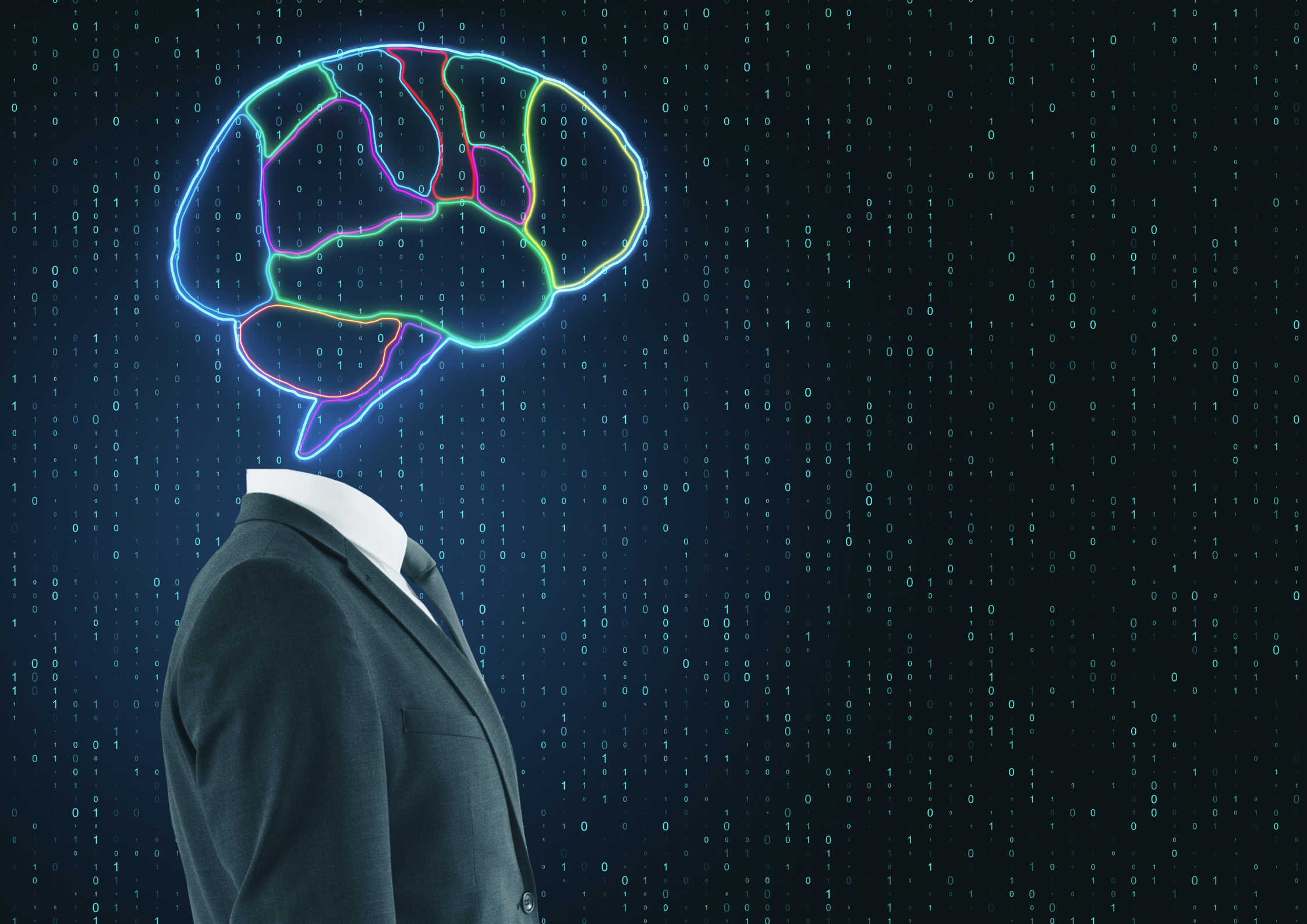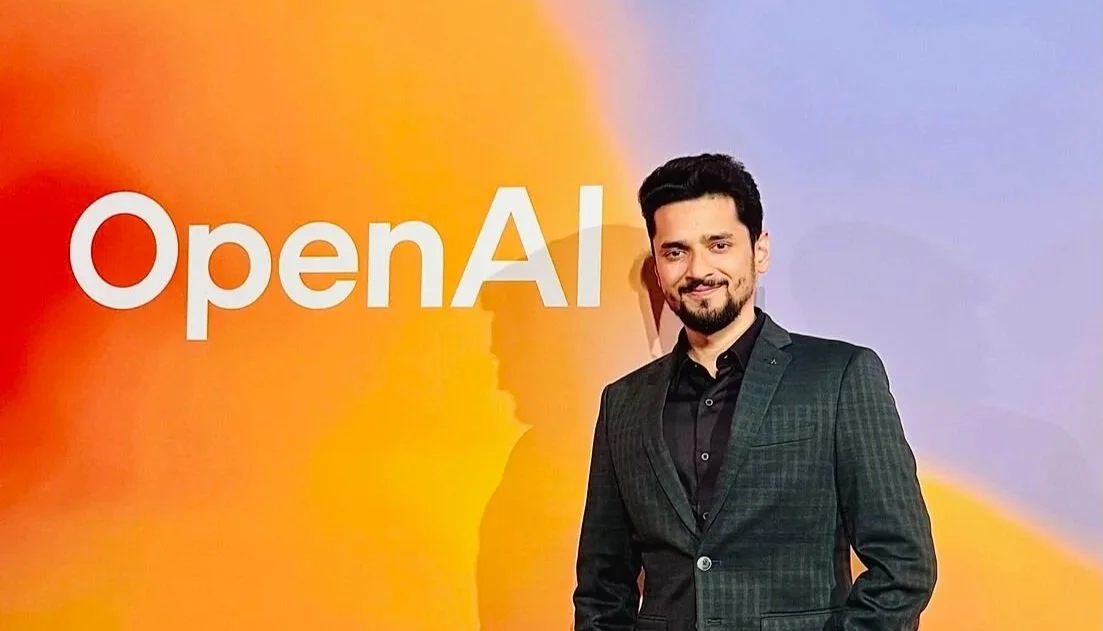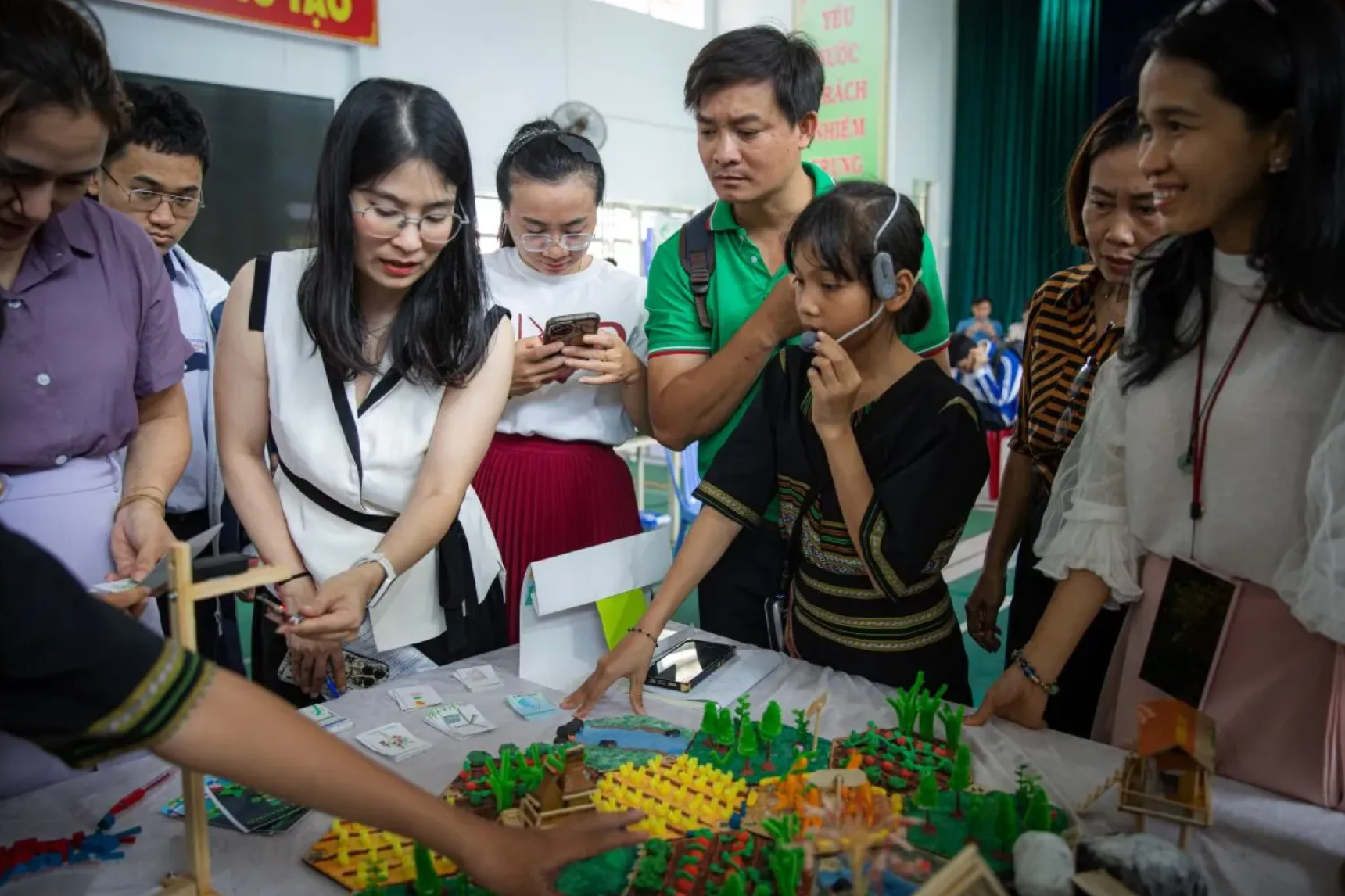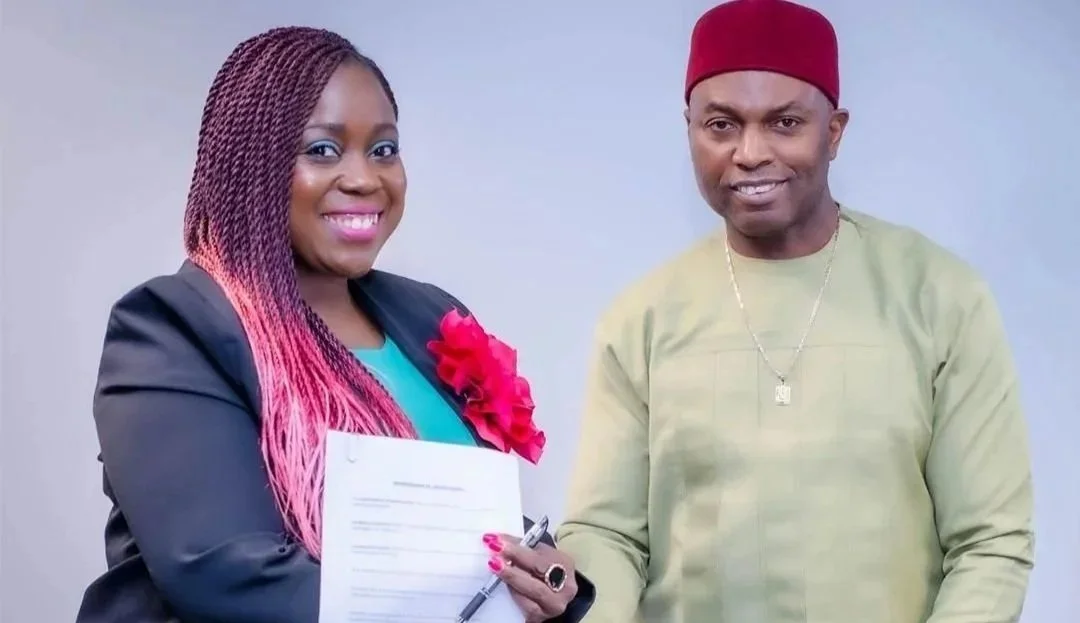Franco-British AI tie ups formalized during Macron visit, linking UCL, Oxford, Cambridge, and French research institutions
Representatives from the Institut Polytechnique de Paris, HEC Paris and Université Paris-Saclay, the University of Cambridge and the University of Oxford formalised the Franco-British partnership at an event in London. Professor Irene Tracey, Vice-Chancellor of Oxford, signed the Letter of Intent on behalf of the University of Oxford. Photo credit: Oxford University
New Franco–British academic collaborations in artificial intelligence were confirmed this week during French President Emmanuel Macron’s state visit to the UK.
The visit included the announcement of formal partnerships between leading institutions in both countries, including a new AI center jointly led by University College London (UCL) and Inria (The National Institute for Research in Digital Science and Technology in France) and a multilateral initiative connecting the University of Oxford, University of Cambridge, and the Paris-Saclay Cluster.
The new UCL–Inria center will be Inria’s first joint international facility. It will host collaborative research teams, provide physical infrastructure for visiting researchers from Inria’s nine French campuses, and offer seed funding to support joint work in areas such as machine learning and digital science. It builds on the Inria London Programme launched in 2019 and will be coordinated by UCL Innovation & Enterprise, with strong links to UCL Computer Science.
At the same event, Oxford and Cambridge signed a Letter of Intent with three French institutions—Institut Polytechnique de Paris, HEC Paris, and Université Paris-Saclay—to create the Entente CordIAle Paris-Saclay – Oxford-Cambridge AI Initiative. The agreement establishes long-term cooperation in research, training, and technology transfer.
AI collaboration to focus on research, training, and sovereignty
At an AI focused event hosted at Imperial College London, President Macron took part in a panel discussion with UCL alumnus and co-founder of Google DeepMind, Sir Demis Hassabis, and French CEO and co-founder of Paris-based Mistral AI, Arthur Mensch. Photo credit: UCL
The Entente CordIAle partnership will focus on five core areas: academic mobility; joint scientific events; shared doctoral supervision and interdisciplinary research; engagement with industry; and alignment with European AI strategy. The initiative emphasizes ethical and sovereign AI development, aiming to create a long-term framework for collaborative innovation between France and the UK.
The Oxford–Cambridge–Paris alliance brings together academic communities working across areas including machine learning, robotics, computer vision, mathematical foundations, and AI ethics. Oxford, in particular, is home to six Centers for Doctoral Training (CDTs) and several Turing AI World-Leading Researcher Fellows.
Professor Irene Tracey, Vice-Chancellor of the University of Oxford, says, “At Oxford, we believe that international collaboration is essential to advancing responsible and impactful AI. […] We are proud to be working alongside our French and UK partners to shape the future of AI. This initiative builds on our existing academic ties and reflects our shared commitment to rigorous science, ethical responsibility and innovation that serves society.”
Presidential support for academic-industry engagement
During the AI event hosted at Imperial College London, President Macron joined a panel alongside DeepMind co-founder Sir Demis Hassabis and Mistral AI CEO Arthur Mensch. Macron described the UK–France relationship as central to advancing applied and ethical AI across both nations.
“The partnership between the UK and France is, for me, critical because we exactly face the same challenges, and teaming up together is the best way to have a critical mass when we speak about our talents, our labs, our key players or our financing capacities,” Macron said.
Professor Geraint Rees, Vice Provost of Research, Innovation and Global Engagement at UCL, says, “It was a pleasure to be part of President Macron’s state visit, and to formally announce the new Inria-UCL Joint Centre. UCL has a long tradition of collaborating with French partners, and the centre is a transformational moment in that history. It will play a central role in fostering further AI co-operation not just between UCL and Inria, but more broadly across France and the UK.”

